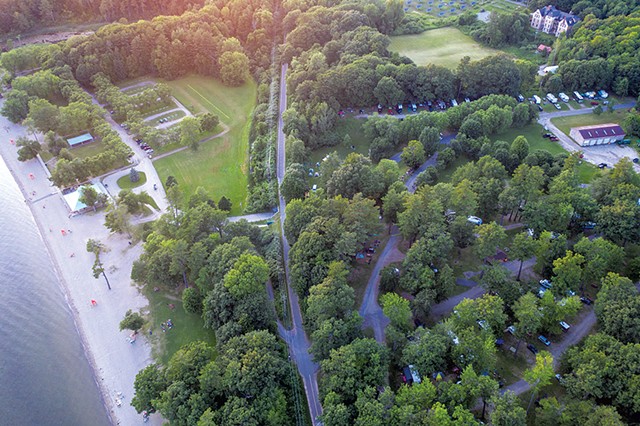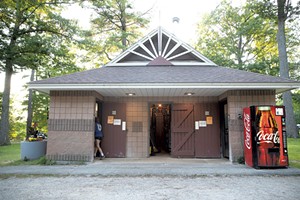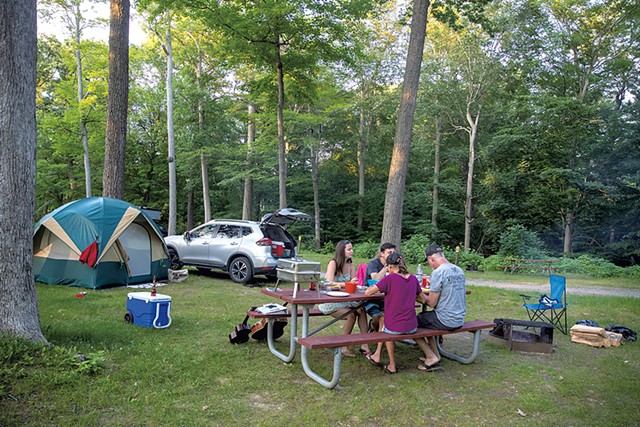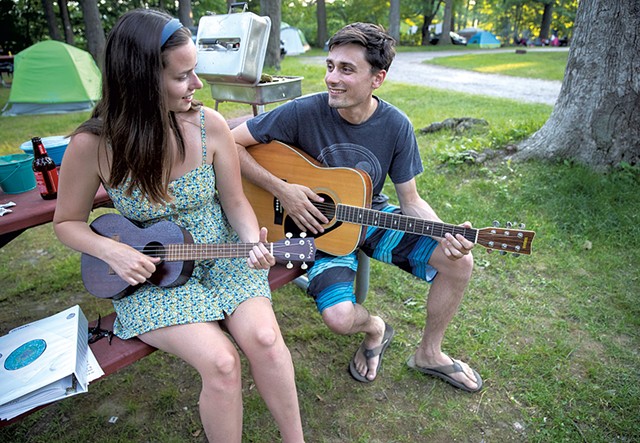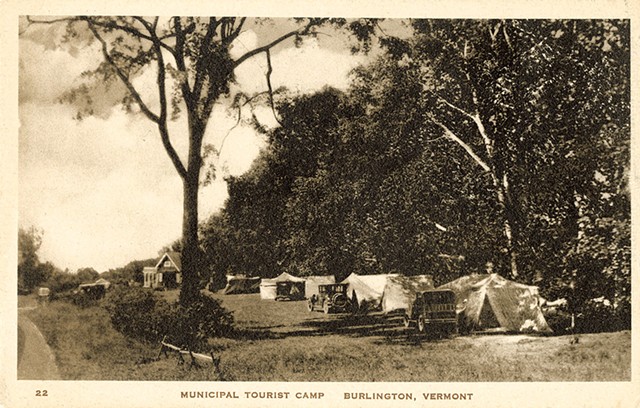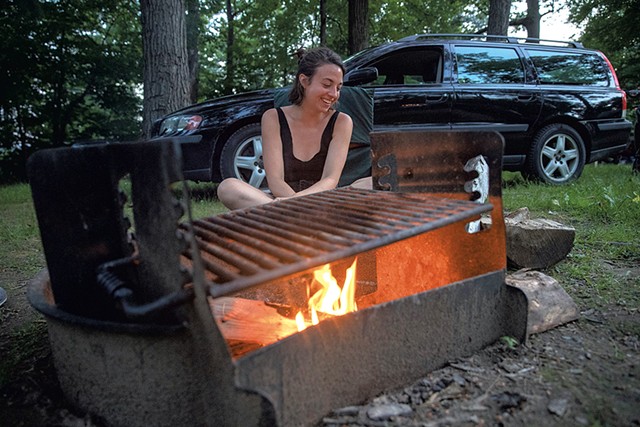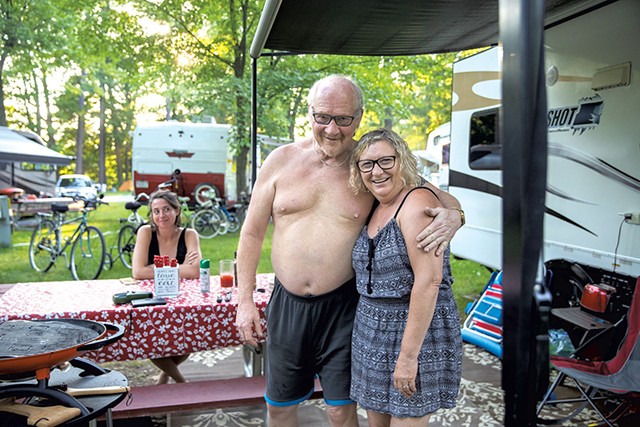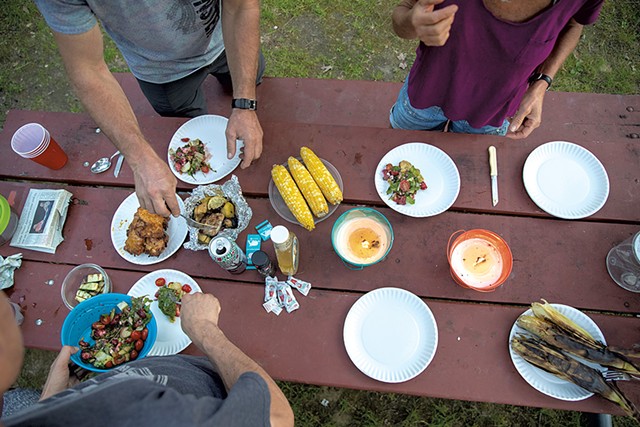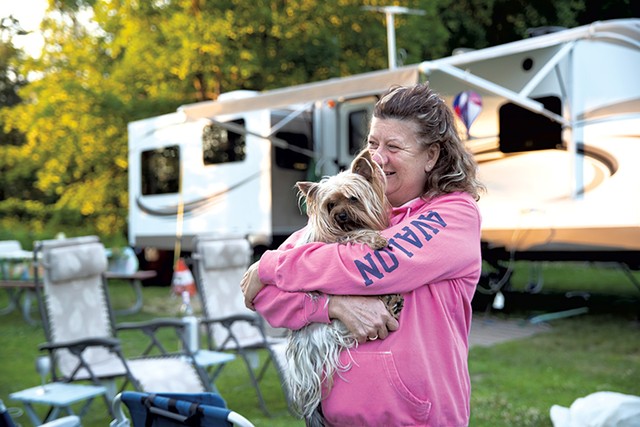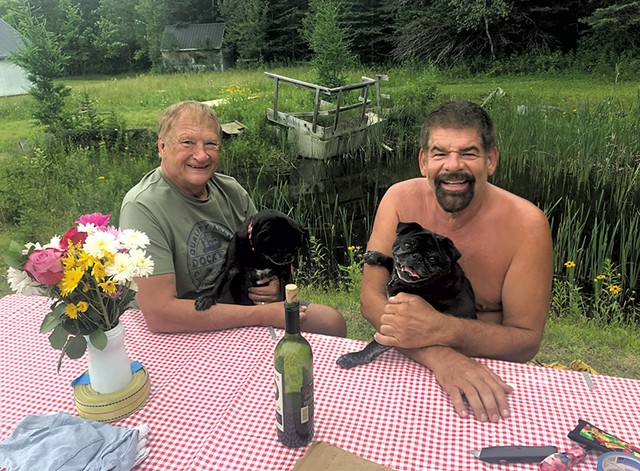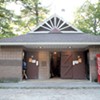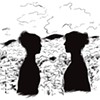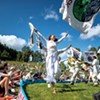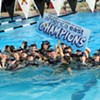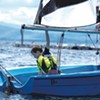Switch to the mobile version of this page.
Vermont's Independent Voice
- News
- Arts+Culture
- Home+Design
- Food
- Cannabis
- Music
- On Screen
- Events
- Jobs
- Obituaries
- Classifieds
- Personals
Browse News
Departments
-
News

UVM Cancels Commencement Speaker Amid Pro-Palestinian Protest
-
Education

Education Bill Would Speed up Secretary Search…
-
News

Middlebury College President Patton to Step Down…
- Overdose-Prevention Site Bill Advances in the Vermont Senate News 0
- 'We're Leaving': Winooski's Bargain Real Estate Attracted a Diverse Group of Residents for Years. Now They're Being Squeezed Out. Housing Crisis 0
- Aggressive Behavior, Increased Drug Use at Burlington's Downtown Library Prompt Calls for Help City 0
Browse Arts + Culture
View All
local resources
Browse Food + Drink
View All
Browse Cannabis
View All
-
Culture

'Cannasations' Podcaster Kris Brown Aims to 'Humanize'…
-
True 802

A Burlington Cannabis Shop Plans to Host…
-
Business

Judge Tosses Burlington Cannabiz Owner's Lawsuit
-
Health + Fitness

Vermont's Cannabis Nurse Hotline Answers Health Questions…
-
Business

Waterbury Couple Buy Rare Vermont Cannabis License
Browse Music
View All
Browse On Screen
Browse Events
Browse Classifieds
Browse Personals
-

If you're looking for "I Spys," dating or LTRs, this is your scene.
View Profiles
Special Reports
Pubs+More
A Reporter Soaks Up Campground Culture at North Beach
Published July 31, 2019 at 10:00 a.m. | Updated August 6, 2019 at 4:45 p.m.
People often speak of the simplicity of camping. There is, in fact, nothing simple about inflating a sleeping pad with your own pipes, only to have it deflate slowly beneath you throughout the night. This turn of events will force you to get up at least twice, depending on your discomfort threshold, and grope around in the dark — because all your light sources, of course, are dead — for the valve opening, which tastes, depressingly, like your own musty breath.
This happened to me the first two of the four nights I spent at North Beach Campground in Burlington. During those innumerable minutes when I lay awake, losing feeling in my coccyx, I thought begrudgingly of the people around me, cozy and dead to the world in their RV sleeper sofas and queen-size Coleman air mattresses. Those people engineer their entire vacations around the principle that a human pelvis should never touch the ground.
I am not an RV or a Coleman air mattress person; I was brought up in the hard-ass puritanical tradition, which decrees that if you're not suffering, you're not having fun. So I was ill prepared for the rigors of extreme comfort to which my fellow North Beach campers subjected themselves. One morning, I listened to a young girl wail for nearly 10 minutes because, due to a generator malfunction, she would not be getting toast. On another occasion, I watched an elderly man pick up a hallway runner he'd placed between the picnic table and the entrance to his RV, bring it around to the other side of the vehicle, and shake off the dirt. Then, I overheard him tell his female companion that all these chores were wearing him out.
Camping at North Beach is not even vaguely like camping, at least not in the backwoods, Lewis-and-Clark sense, which entails iodine tablets and notifying people of your plans and, if you're not careful, the very real prospect of starvation. Every season, from May 1 to October 1, approximately 30,000 people participate in this American-dream-agitprop pageant of the mastery of mankind over his surroundings.
Even Canadians, who make up roughly a third of North Beach's summer population, seem to embrace the concept, as evidenced by the clan of Québécois RVers at the site directly across from me. Every single night, they went to the trouble of turning their picnic area into an actual brasserie, complete with red-and-white-check tablecloth, stainless steel wine goblets, and tapers.
Appropriately, I chose to bear witness to this tableau between the Fourth of July and Bastille Day, July 14, the period when both campground occupancy rates and patriotic tinsel displays tend to peak. My mission was to try to understand the appeal of what might be Vermont's least remote campground — and to observe the rituals of people on vacation in what might be our species' most public form of rest and relaxation.
At each of North Beach's 137 sites, you have no choice but to exist in full view of at least several neighbors. The concept of privacy exists mainly as an unenforceable agreement not to be too obvious about eavesdropping on one another — a social contract that I frequently and flagrantly violated. But, as I soon discovered, the hyper-visibility works both ways. Tenting alone at a family campground looks kind of creepy. People wonder about you.
I did have a couple of visitors, though, which ruined my image as a hermit sociopath. After two miserable nights on the leaky sleeping pad, a friend who lives in Burlington came by and loaned me his air-tight one, upon which I slumbered more or less soundly for the rest of my stay. My puritan forebears would have understood: At North Beach, there's no glory in pretending that Burlington, with its endless conveniences, isn't literally in your backyard.
Backyard Survivalism
At North Beach, you can choose from a basic tent site, outfitted with just a picnic table and fire pit, for $38 a night; a site with a table and pit, plus a water spigot and an electrical outlet, for $41 a night; or a site with all of the above plus a sewage hookup for $45 a night. There are also three post-and-beam pinewood lean-tos, in which you can snooze in full view of every passing human and beast for a mere $45 a night.
A one-way loop road connects nearly all of the campsites. Most afternoons, this thoroughfare is patrolled by kids on bikes, all of whom wear the same look of solemn determination. At the center of the campground is a bathhouse, with showers, flush toilets and a dishwashing sink with potable water. The hardest thing I had to do during my stay was schlep gallon bottles back and forth between my tent site and the tap.
There's a campground store near the main entrance, just past Burlington High School on the seductively named Institute Road. At the store you can buy, among other things, ice for $3.99 a bag; firewood for $5 a bundle; a Burlington Parks, Recreation & Waterfront-branded beer koozie for $2; and something called a "women's travel kit" containing deodorant, shampoo and conditioner for $10. But the existence of a campground store seems oddly gratuitous when you consider that you are 100 percent within Burlington city limits and 1.3 miles from a Hannaford.
Even your least convenient needs are tantalizingly meetable. Say, for instance, you live in Burlington and your landlord decides to withhold your security deposit, and you're determined to sue ASAP, even though you're on vacation at North Beach. Depending on the hour, you can leave your hot dog on the campfire grill, drive a mile up North Avenue to the UPS store, get your suit notarized, and return to a perfectly roasted weiner. In other words, your odds of survival are so comically high that the place almost seems to be goading you: Just try to perish here. I'll wait.
People come to North Beach for a dose of urban survivalism, a grown-up fantasy of running away from home and roughing it in the backyard, sneaking into the kitchen as necessary to refuel. But even with its cat-flap ease of access to the civilized world, the place feels like a sealed biodome, sustained by the illusion that it exists apart from its surroundings.
A fence separates the campground from the bike path; a steep embankment marks its southern boundary with Lakeview Cemetery. The main entrance gate closes at 9 p.m., after which you have to bamboozle the person who works the night shift at the office into letting you in. The gateway to the bike path, at the campground's western border, stays open all day long; at some point after dusk, someone allegedly locks it, though I never saw or heard anyone do such a thing. (As with all great institutions, a certain amount of elfin magic keeps it going.)
Of course, it would be ridiculous to tell a bear or an arsonist that they need to respect that the gate has been closed for the evening, so the fence is really more symbolic than functional. We mill around within this paddock, bound by an unspoken pact to protect one another in the event that the outside barges in, all the while conducting constant micro-assessments of possible danger lurking among us. Hence the kids on their endless, looping bicycle vigil. They're just keeping an eye on things.
'Perfect Relaxation'
The Zercies normally go for rugged wilderness excursions, but this year, they wanted to try a more civilized adventure. Andrew Zercie, a Boy Scout leader and a high school special education teacher in Bolton, Mass., had heard incredible things about North Beach from a coworker: It's right on Lake Champlain! It's right in the middle of Burlington! What more could anyone want in a vacation?
In March, the family booked site 34 for a long weekend in early July — Zercie's coworker had insisted that it was the best spot at the campground, farthest away from the huddle of tents and RVs.
Site 34 happened to be kitty-corner from my encampment. Unbeknownst — or so I thought — to the Zercies, I had been watching them for two days, admiring their togetherness. When I walked over and introduced myself as a journalist trying to understand the unique appeal of North Beach, Andrew Zercie looked almost relieved.
"We noticed you, but we couldn't figure out what you were doing here alone," he said. "We were like, 'Is she waiting for someone?'"
That afternoon, the Zercies were lounging around their campsite, killing time before the Vermont Lake Monsters game that evening. The night before, they'd gone to see Spider-Man: Far From Home at the Sunset Drive-In Theatre in Colchester. The choice of movie was somewhat ironic, because there's actually a drive-in theater close to their home in Franklin, Mass., where the line to get in is usually so long that you have to show up at least two hours early. Not wanting to take any chances, Andrew told me, they'd arrived at Sunset an hour before the movie started. The place was completely empty.
The Zercies are seasoned campers, the kind of people who willingly participate in a Boy Scout thing called the Klondike Derby, which involves sleeping outdoors in the dead of winter and sounds like a surefire way to get gangrene. North Beach, on the other hand, is purely relaxing for them, an environment in which the meeting of basic needs is a form of recreation.
"We cook breakfast at camp, then we go for a bike ride, then we might go have a picnic lunch down at the beach," said Andrew. "Our lives at home are so programmed between work and school and sports, and this experience allows us to just be together without having to do any planning."
Humans are becoming increasingly harried: Last year, according to a Gallup poll, Americans reported feeling more stressed, angry and worried than at any other point in the last decade, which might explain why an increasing number of them are opting for a vacation format in which lunch serves as the fulcrum of the day.
According to a 2019 report by Kampgrounds of America, the largest operator of campgrounds in the world, the number of households that camp at least once a year has grown 22 percent since 2014, from about 32 million to just over 39 million. That increase, which works out to approximately 7.2 million people, is roughly equal to the city populations of Los Angeles, Chicago and Boston combined. The outdoor recreation industry as a whole is worth nearly $412 billion, comprising a larger share of the American gross domestic product than the sector that includes coal mining, oil drilling and gas extraction.
There are more than 13,000 vehicle-accessible public campgrounds in the U.S. and Canada. That figure doesn't include privately owned facilities, such as Kampgrounds of America, which receives roughly 15 million visits at nearly 500 campgrounds in North America each year. Chris Bissonette, president of the Vermont Campground Association, estimates that there are about 125 public and private campgrounds in the state, at which some 2,970,000 campers unfurl their sleeping bags each season.
The roots of the modern camping-industrial complex can be traced back to the summer of 1864, when Connecticut minister William H.H. Murray took his first wilderness vacation in the Adirondack Mountains. He returned annually for the next 14 summers, drawn in particular to one spot — Osprey Island on Raquette Lake, across from Woods Point. Sometimes, he would bring groups of up to 30 people, including his wife and her friends — a maverick move, given the era's gender politics.
Throughout the mid-1860s, Murray chronicled his Adirondack experiences in a series of what he called "vivacious essays," published in 1869 as Adventures in the Wilderness. A sort of proto-Bill-Bryson-meets-unfunny-Mark-Twain first-person narrative interspersed with practical camping advice, the book received mixed reviews but was a runaway commercial success, offering a prescription for the nature-starved psyches of the Northeast's growing urban class. As Murray wrote, "a visit to the North Woods could not fail of giving them precisely such a change as is most desirable, and needed by them. In the wilderness they would find that perfect relaxation which all jaded minds require."
The summer after the publication of Adventures, some two to three thousand camping pilgrims from New York, Boston and Hartford swarmed the region, seeking rejuvenation in the woods. In the 2017 publication Heading Out: A History of American Camping, author Terence Young writes that by July 1869, demand was so great that "publishers produced a 'Tourist's Edition,' with twelve pages of timetables and a map in the back pocket." Railroads provided a free copy of the book with every purchase of a round-trip train ticket to the Adirondacks.
Over the next century, the rise of automobiles, along with the development of the National Park System, would transform the practice of camping from a radical excursion away from civilization to an extension of civilization's comforts in a "wild" setting. In the late 1920s, plant pathologist Emilio Meinecke became the first scientist to publicly express concerns about the impact of cars on ecologically fragile areas. After studying the effects of motor tourism in Sequoia National Park, Meinecke developed what is now the standardized campground road design: a one-way loop.
The advantage of the loop was that it prevented cars from driving willy-nilly and annihilating the flora; the result — or the disadvantage, depending on your point of view — is that today, from the Redwoods to the Badlands to North Beach, every campground feels weirdly, or perhaps comfortingly, the same.
True North
click to enlarge 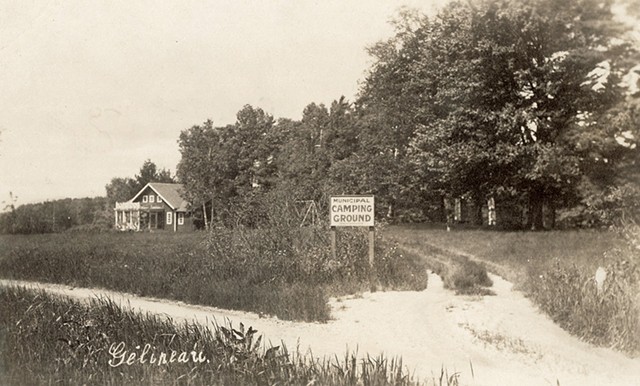

- Courtesy of University of Vermont Special Collections
- A postcard from a camping trip at North Beach, July 23-24, 1928
From its beginning, North Beach has been the de facto municipal resort of Burlington. As early as 1902, when swimming along the Burlington waterfront was illegal, parks commission president W.J. Van Patten expressed interest in establishing a public beach. In 1914, at a meeting of the First Church Brotherhood, summarized in the Burlington Free Press, Patten asserted that, due to the presence of sewage in the water in the city's south end, "the north beach would be most desirable."
In July 1918, the city purchased 1,230 feet of lake frontage from the North Avenue property of Mary E. Arthur, along with 20 acres "for park purposes," for a grand total of $10,000. The "municipal bathing beach," as it came to be known, was an instant attraction. In its first season, the summer of 1919, the park commission declared it a success, and "only on the Fourth of July was [the beach] severely overcrowded." Over the next few decades, the city made infrastructure improvements with funding from the Civil Works Administration and president Franklin D. Roosevelt's Works Progress Administration.
click to enlarge 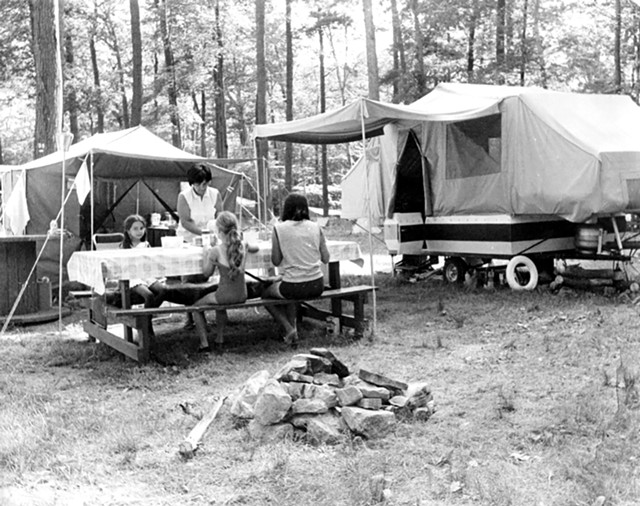

- Courtesy of Burlington Parks, Recreation & Waterfront Department
- A family picnic at North Beach Campground, circa 1960-70
It's unclear when, exactly, auto-camping made its official debut at North Beach, but a 1941 notice in the Burlington Free Press indicates that the municipal park was already a destination for motor homes: "Main Line House Trailer. May be seen at Municipal Beach, Camping ground. R.C. Miller, owner." By the mid-1960s, camping had become enough of a draw at North Beach that the city constructed 30 new sites. Reservations spiked, in part, due to a blurb in the 1963 edition of the nationally distributed "Camping Guide," wherein editor George S. Wells described North Beach as "exceedingly pleasant."
Until 2014, there was no limit to the number of consecutive weeks you could reserve a campsite at North Beach, and the campground only accepted bookings over the phone or in person. That setup made it difficult for new people to secure a spot; meanwhile, sites were often left vacant because the campground lacked the staffing capacity to answer every phone inquiry. When Alec Kaeding became North Beach's campground and beach manager in 2014, he recognized that the existing system was costing the city tens of thousands in potential revenue each summer.
"I came from the Michigan state park system, and we had a two-week maximum stay, which worked really well," Kaeding said. "You get more people, and more families, and then they tell their friends."
That summer, Kaeding capped reservations at two weeks; in 2015, he implemented an online reservation system, making it easier for non-Vermonters — and non-English speakers — to book a site. The new reservation protocol has had a significant impact on the bottom line: In 2013, before Kaeding's overhaul, the campground brought in $357,000; in 2014, revenue rose to $425,025. Earnings have climbed steadily every year since; in 2018, North Beach netted $625,923, a 75 percent increase from 2013.
The most visible result of these administrative changes has been a shift in campground demographics. Over the past five years, North Beach has transformed from a semipermanent summer village, occupied year after year by more or less the same people, into a vacation destination where you can play the license plate game for more than five minutes without getting bored.
Of the 5,058 reservations at North Beach in 2018, only 441 came from Vermonters. Vacationers from states other than Vermont, New York, New Hampshire, Massachusetts and Connecticut accounted for 1,180 reservations; Canadians, as a single group, made up the largest proportion of reservations, with 1,887.
"One of the biggest things I heard when I started was that people had been trying to get into this park for years, but people had dibs," Kaeding explained. "So we had lots of retired couples but not so many families. Now, we're seeing lots of families with kids, and the hope is that their kids will keep coming when they get older, and it'll get passed on down through the generations."
Resting Beach Face
Saturday night, approximately 9:45 p.m.: I commit the fatal error of changing into comfy clothes and burritoing myself in my sleeping bag before emptying my bladder. For a few minutes, I try, stupidly, to fight it, thinking wistfully of catheters. But just getting up and walking to the bathhouse would be so much easier than lying here and giving myself a kidney infection, right? Right!
So, when I'm officially on the verge of pissing myself, I simply sit up, grab my flip-flops from the corner of the tent, unzip the flap, extend both legs outside the tent without letting my feet touch the ground, reach my arms through the flap opening, put my shoes on my feet without being able to see either my hands or my feet (abdominal muscles: excruciatingly engaged), and then perform a hybrid limbo-crab walk, which entails supporting most of my weight with my hands and scooting forward until everything from my waist down is outside the tent.
Then, I plant my feet, push up into a semi-bridge, tilt my head to one side and also — don't ask me how! — tuck my chin into my left clavicle to avoid catching the tent flap in the face, and heave myself upward in one singular feat of Olympic-grade derring-do. All of this just to avoid getting dirt in my sleeping quarters and, possibly, dialysis. So worth it.
Conveniently, both my phone and headlamp are out of battery, so I make my way to the bathhouse by the light of other people's bonfires. There's something unnerving about seeing so many groups of people clustered around their fire pits in pitch-darkness, their bodies silhouetted by flames, a grim insularity, a sense of keeping something at bay. If resources were scarce, each fire pit circle would represent a distinct faction, a clan of mutual aid. I have no clan. I'd probably be the first to get cannibalized.
My thoughts of being served on a bun with coleslaw evaporate the instant I open the door to the women's bathroom. A fug of Pantene, base notes of benzoyl peroxide. Teenage girls lined up three or four deep at each of the three sinks, craning around each other to get to their phones, plugged into the outlets by the mirrors. An Ariana Grande song plays from someone's device, tinny and distant, as if it's being piped in from outer space. The girls grimace at their reflections, pretend not to watch each other's private mirror-faces. Someone proclaims that she loves to floss. Either no one hears, or they ignore her.
I pee, decide it's not worth the effort to red-rover through their tightly closed ranks to get to the sink, and return to my humble abode. Tent reentry, blissfully, is much simpler than escape.
Now that I'm actually ready to go to sleep, my brain decides that it's a great time to catalog every single noise — the whine of bottle rockets in the distance, followed by a chorus of male whooping; the operatic keening of a kid who will not be prevailed upon to brush her teeth, not even with the Snoopy toothbrush and the bubblemint toothpaste; the occasional metallic pop of someone opening a beer. I finally manage to doze off, only to be awakened some hours later by the gleeful jibber-jabber of raccoons, marauding for snacks.
Parenting, Unplugged
Lacey and Jake Rollins, from Gorham, Maine, came to North Beach for a long weekend with three other families. By Sunday afternoon, two of their friends had departed, leaving a swath of open sites, like a mouth with missing teeth. Lacey and Jake were hanging out at the picnic table under the shade of their RV awning, which they'd festooned with lights shaped like Easter Island statuettes.
"Our youngest son is obsessed with Moana," Lacey explained, referring to the Disney movie. She had short brown hair, nicely tanned olive skin and the relaxed but slightly regimented air of someone who does a lot of Bikram yoga. The Moana-crazy Connor, age 4, and his older brother, Declan, 7, were capering about nearby, agitated by the jingle of an approaching ice cream truck.
The Rollins family first came to North Beach last year, after hearing about it from a friend. The RV had belonged to Lacey's aunt, who left it to them after she passed away. Lacey and Jake used to do a lot of tenting — "New Mexico, Arizona, Red Rocks, that kind of thing," she said. But now, with two kids and a dog, the RV model of take-it-all-with-you travel is more appealing to them.
"We can cook all our own food here, we can be outside, and the kids don't even ask for electronics or screen time. They love it," Lacey said. "But there's no way we'd be able to do all of this without my aunt."
Meaning, of course, that RV vacations aren't cheap: A new Winnebago RV can retail for more than $120,000, not to mention the price of fuel and the countless gadgets people acquire to feather their mobile nests.
In fact, the first thing I noticed about Jean-Pierre Pollender and Francine Leblanc was their portable Napoleon grill, which was sandwich-cookie round and bright orange, like an oversize macaron. Out of curiosity, I did some googling: $250, a bit much to shell out for cuteness. But the other thing I observed was that they spent most of their time sitting across from each other at their picnic table, engaged in what looked suspiciously like actual conversation. Intrigued, I went over and introduced myself one afternoon, while they were eating ham-and-cheese sandwiches.
Jean-Pierre did most of the talking. I'm still not sure if this was because his English was better than Francine's, or because Francine was skeptical about the intrusion of an unaccompanied woman who called herself a journalist and had decided to get friendly around lunchtime. Maybe she took me for some kind of cold-cut grifter. In any case, I didn't blame her for being wary: I had been bathing exclusively in the lake with Dr. Bronner's soap for three days, and my hair had just transitioned from merely greasy to Phil Spector on trial.
In spite of this situation, Jean-Pierre and Francine invited me to sit down at their picnic table. They told me they had driven their Slingshot RV down from Sainte-Barbe, 45 minutes southwest of Montréal.
"It takes about two and a half hours for us to get here," Jean-Pierre said between bites of sandwich. "Well, actually, more than that, because we have to drive very slowly with this."
Jean-Pierre was shirtless, twinkle-eyed and merrily bejowled, a Québécois Sir John Falstaff on summer holiday. Fourteen years ago, he said, he retired as a conductor on the Amtrak Vermonter train between St. Albans and Montréal. Francine, a receptionist at a dentist's office, is hoping to retire soon, at which point they plan to make even more use of the Slingshot. They've been coming to North Beach for several years — exactly how many, they can't recall — because it's the best lakefront within a reasonable distance of home.
"Saint-Barbe has a lake," Jean-Pierre explained, attempting to convey the shortcomings of his local waterfront, "but it's got those big flat boats, what do you call them in English?" — pontoon boats — "and people go out there and do, you know, the singing." Karaoke. Say no more, Jean-Pierre.
#Nofilter Sunset
It's hard to pinpoint the precise moment when things started to feel surreal beyond comprehension, as if I had wandered into a postmodern outdoor theater festival. Maybe it was when I saw the pine-scented candle on a picnic table, not 30 paces away from an actual pine tree. Or perhaps it was when I met Marley the Yorkshire terrier, whose owner insisted on showing me photos of Marley on her iPhone while the actual dog sniffed around our feet.
Or it might have been just before sunset one evening, when I watched two teenage girls stake out a patch of amber light near the bathhouse, take a series of selfies, and then debate the merits of applying an Instagram filter to augment the drama. (One of the advantages of not using a filter: "Then we can use #nofilter!")
This seemed bananas, until I wandered down to the beach and saw the sky over the lake, watercolored with rose-gold and mauve and celestial blues. When I tried to capture it with my iPhone camera, the light in the photos looked faded and dingy. But with a little Botox from Instagram, I could almost approximate the glorious real thing.
By the final day of my sojourn, I had been lulled into such a deep, simulacra-induced stupor that I was startled to see a bona fide squirrel, quietly making love to a Hershey wrapper, at the vacant site next to mine.
I knew that tenting alone at a family campground would be weird. But I wasn't prepared for the particular flavor of weird, an unexpected cocktail of lonely and claustrophobic, overstimulated and bored, reminiscent of the way I feel after a long trip on crowded public transit. I was always by myself and always surrounded, pressing my nose against the glass of other people's lives, which only heightened the feeling of being trapped in my own. There are only so many hours you can spend in solitary contemplation of the small grassy patch you call home.
Not that it wasn't relaxing. I found absolutely no hardship in milling around in the sun all day and then, around 5:30, figuring out how to feed myself, which usually meant scorching an Andouille sausage over the fire pit, trichinosis being the only thing that might have killed me out there. By the end, I'd even found a primordial comfort in falling asleep to the murmur of human activity around me, the voices around the bonfires our ancestors first lit to keep the wolves away.
A Stripped-Down Experience
Seventy-five miles from the family weiner roasts at North Beach, there's a new nudist campground where you can't quite get naked. At least not until owners Jeff Jensen and Craig Geisler put up some kind of screen by the entrance, which happens to be along a school bus route. But the proprietors of Vermont Freedom Adult Only Campground, which opened in Stannard this summer, still want you to come and hang out.
Wisconsinites Jensen and Geisler, partners in life and in business, didn't exactly set out to move to Vermont. They had wanted to buy a clothing-optional campground in Mazomanie, Wis., where they've been summering for the past eight years. But when the owner wasn't interested in selling, they turned to Google, which is how they stumbled upon a vacant campground in Stannard. After visiting in early December — "There were two feet of snow on the ground, so we should have known what we were in for," Jensen joked — they bought the property in the spring for $229,000.
Previous owners had outfitted the campground with a bathhouse, picnic tables and RV hookups. But after sitting unused for periods of time — the property has had several owners over the past two decades, said Jensen, none with the resources to sustain it — the place was in need of TLC. So Jensen, a retired mechanic who exudes relentless fix-it-ness, spent a miserable few weeks sleeping in the uninsulated barn that serves as the campground office, doing odd maintenance work. Geisler, who doesn't do uninsulated barns, stayed at their home in Madison. Currently, Geisler and Jensen, along with their pugs, Rico and Suave, are rusticating in an RV on the premises.
So far, they've had a slow first season, not helped by spring's endless rain and below-average temperatures. By early July, just one visitor had come specifically for the nude experience; the rest were regular campers.
But for now, Jensen and Geisler don't seem worried about reservations, and they're definitely not looking to cater exclusively to the minimally clad. Their goal is to create a welcoming environment for everyone, which, according to their website, means "white, black, brown, tan, gay, straight, bisexual, heterosexual, homosexual, married, single, polyamorous, nonamorous, Dom, sub, exclusive, non-exclusive, non-binary, binary, sadists, masochists, any type of sexual as long as you are not a jerk, over 21 and respect your fellow camper."
Providing a summer haven for the LGBTQ community is just as important to Jensen and Geisler as being a clothing-optional zone. Those two worlds intersected for them at Cedar Hills, the nude campground they frequent in Wisconsin. ("Frequent" is a bit of an understatement: They've established a veritable gay summer hermitage there, complete with raspberry patches, a spa, a fountain with color-changing lights, a "gay-zebo" with a chandelier, and a flagpole with a massive pride banner.)
"Before we started going there, we had no gay friends," said Jensen. "There's something about that environment that allows people to be genuine with each other, to really open up. It's not sexual at all."
At their campground, Jensen emphasized, the clothing-optional component will be truly optional. "People absolutely do not have to get naked if they don't want to," he said. And even at the nudest of nude campgrounds, he added, people tend to cover up at mealtimes; apparently, something about the combination of nudity and food just doesn't work, akin to Jerry Seinfeld's hang-up about naked pickle-jar opening.
The timing of this venture might be perfect: In June, the Northeast Kingdom Regional Tourism Marketing Partnership unveiled the "Get NEKed" campaign, an effort to spur economic activity by promoting the region as a cultural destination. A blanket invitation to disrobe this isn't — while public nudity is legal in Vermont, taking off your clothes in public, weirdly, is not. But that kind of risqué slogan might prompt prospective visitors to investigate opportunities for au naturel recreation.
According to Jensen and Geisler, their neighbors have been fully supportive of their endeavor. "No one seems weirded out at all," said Jensen. "One of our neighbors told us she's glad we're here, because she thinks that the puritanical views on sexuality in this country are ridiculous."
Even the UPS guy, said Geisler, is pretty down with the whole thing: "I asked him if he'd mind seeing a naked person, and his response was, 'Only if they attacked me.'"
The original print version of this article was headlined "Notes From the Campground | A reporter "roughs it" for four days at North Beach"
Related Locations
-
North Beach
- 52 Institute Rd., Burlington Burlington VT 05401
- 44.49474;-73.23582
-
 802-864-0123
802-864-0123
- enjoyburlington.com…
Related Stories
Got something to say?
Send a letter to the editor
and we'll publish your feedback in print!
Tags: Outdoors & Recreation, Burlington, North Beach Campground, camping, Vermont Freedom Adult Only Campground, North Beach
More By This Author
About The Author

Chelsea Edgar
Bio:
Chelsea Edgar is a staff writer for Seven Days, and has written for BuzzFeed and Philadelphia magazine.
Chelsea Edgar is a staff writer for Seven Days, and has written for BuzzFeed and Philadelphia magazine.
About the Artist

James Buck
Bio:
James Buck is a multimedia journalist for Seven Days.
James Buck is a multimedia journalist for Seven Days.
Speaking of...
-

Overdose-Prevention Site Bill Advances in the Vermont Senate
May 1, 2024 -

Aggressive Behavior, Increased Drug Use at Burlington's Downtown Library Prompt Calls for Help
May 1, 2024 -

Reinvented Deep City Brings Penny Cluse Café's Beloved Brunch Back to Burlington
Apr 30, 2024 -

Burlington’s Blue Cat Steak & Wine Bar Closes After 18 Years
Apr 30, 2024 -

Burlington Budget Deficit Balloons to $13.1 Million
Apr 25, 2024 - More »
Comments (3)
Showing 1-3 of 3
Comments are closed.
From 2014-2020, Seven Days allowed readers to comment on all stories posted on our website. While we've appreciated the suggestions and insights, right now Seven Days is prioritizing our core mission — producing high-quality, responsible local journalism — over moderating online debates between readers.
To criticize, correct or praise our reporting, please send us a letter to the editor or send us a tip. We’ll check it out and report the results.
Online comments may return when we have better tech tools for managing them. Thanks for reading.
- 1. Video: Visiting the Wind Phone at the Lanpher Memorial Library in Hyde Park Stuck in Vermont
- 2. Woodstock Poetry Festival Replaces Bookstock Books
- 3. STRUT! Fashion Show Returns After Four-Year Hiatus Culture
- 4. The Magnificent 7: Must See, Must Do, May 1-7 Magnificent 7
- 5. Adam Tendler and the VSO to Premiere Vermont Composer Nico Muhly’s First Piano Concerto Performing Arts
- 6. Shaina Taub's 'Suffs' Earns Six Tony Nominations, Including Best Musical Performing Arts
- 7. In ‘Painting the Town,’ Julie Davis Pays Tribute to Johnson Landmarks Art Review
- 1. How a Vergennes Boatbuilder Is Saving an Endangered Tradition — and Got a Credit in the New 'Shōgun' Culture
- 2. Waitsfield’s Shaina Taub Arrives on Broadway, Starring in Her Own Musical, ‘Suffs’ Theater
- 3. This Manchester Center Family Is a National Show Horse Powerhouse Animals
- 4. Video: 'Stuck in Vermont' During the Eclipse Stuck in Vermont
- 5. Pet Project: Introducing the Winners of the 2024 Best of the Beasts Pet Photo Contest Animals
- 6. Vermont Poet Sydney Lea on His New Collections of Verse and Prose Books
- 7. Video: Visiting the Kellogg-Hubbard Library’s PoemCity in Montpelier During the Month of April Stuck in Vermont

























